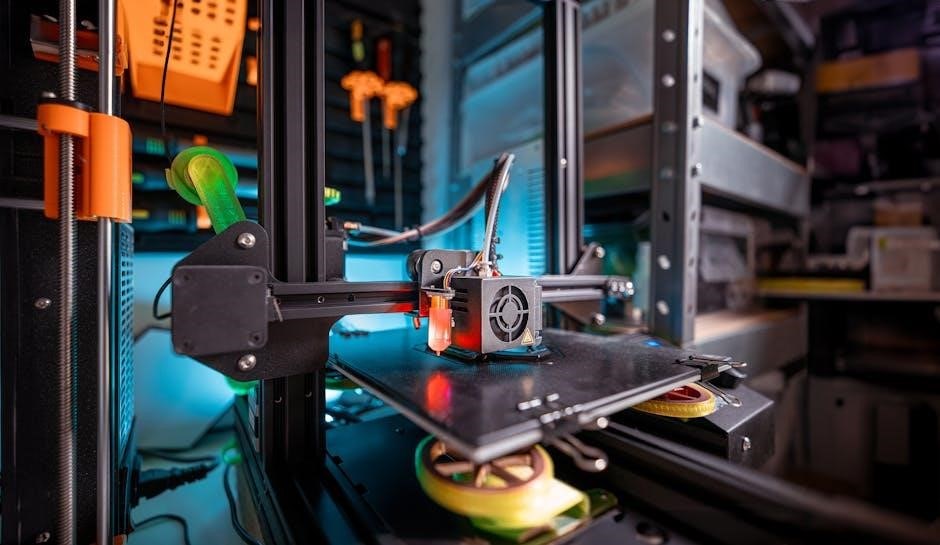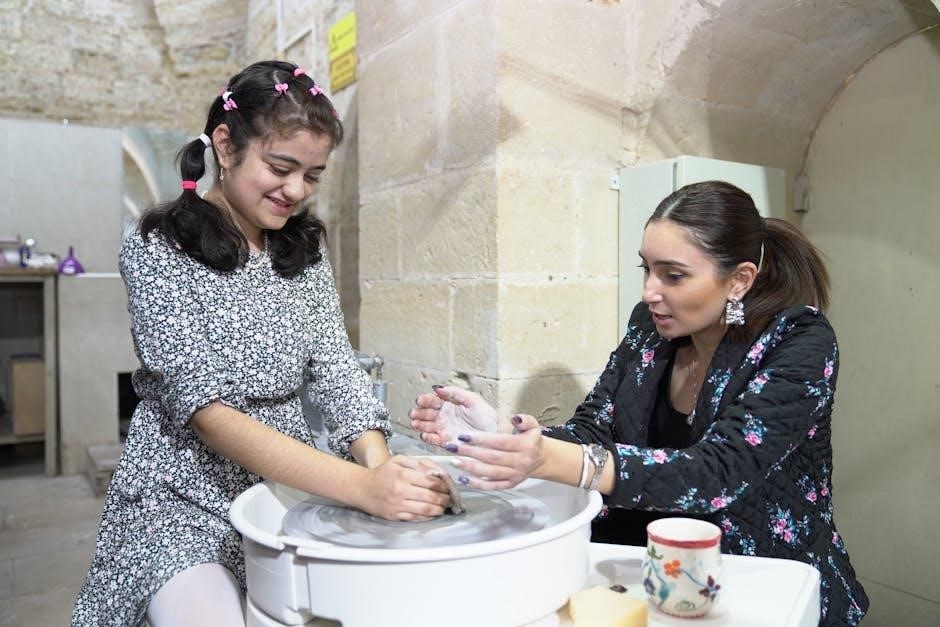Understanding Shoe Width: A Comprehensive Guide
Navigating the world of footwear requires understanding shoe width‚ a crucial element often overlooked. Proper width ensures comfort and prevents foot problems‚ impacting overall well-being.
What is Shoe Width and Why Does it Matter?
Shoe width refers to the circumference of the foot inside the shoe‚ specifically across the widest part of the foot. It’s a critical component of fit‚ alongside length. Ignoring width can lead to discomfort‚ blisters‚ bunions‚ and even more serious foot ailments. A 2021 study in the Journal of Foot and Ankle Research highlighted over thirty-eight factors influencing shoe fit‚ with width being paramount.
Proper width accommodates the natural shape of your foot‚ preventing squeezing or excessive movement. Widths range from extra narrow (AAAA) to extra wide (EEEE)‚ catering to diverse foot shapes. Finding the correct width ensures optimal comfort and supports healthy foot function‚ impacting posture and overall body alignment. It’s essential for both athletic performance and daily comfort.
The Importance of Proper Shoe Fit
A correctly fitting shoe is fundamental for foot health and overall well-being. Beyond length‚ width plays a vital role; a shoe too narrow can cause painful blisters‚ nerve compression‚ and even deformities like bunions. Conversely‚ a shoe too wide offers insufficient support‚ leading to instability and potential injuries. Comfort is paramount‚ and a proper fit enhances daily activities.
Prioritizing fit ensures optimal foot function‚ impacting posture and gait. Many factors determine fit – toe shape‚ style‚ and width are key; Retailers offering extended widths‚ from X-Narrow to extra wide‚ acknowledge the diversity of foot shapes. Measuring foot width‚ especially at the widest point‚ is crucial for selecting the appropriate size. Remember‚ a comfortable shoe supports an active and healthy lifestyle!
Standard Shoe Width Designations
Shoe width is standardized using a lettered system‚ though variations exist between manufacturers. The smallest width is typically designated as ‘AA’ or ‘AAAA’ for women and ‘AAAA’ for men‚ representing a very narrow fit. Progressing upwards‚ widths increase to ‘B’‚ ‘C’‚ ‘D’‚ ‘E’‚ ‘EE’ (or 2E)‚ ‘EEE’ (or 3E)‚ and ‘EEEE’ (or 4E)‚ indicating progressively wider options.
‘D’ width is generally considered standard for men‚ while ‘B’ is standard for women. These designations translate to specific measurements in inches; for example‚ a 3-1/4 inch width corresponds to ‘AA’. Understanding these designations is vital when shopping‚ especially online‚ as fit can vary significantly between brands and styles. Always consult specific brand width charts for the most accurate sizing.

Women’s Shoe Widths: A Detailed Breakdown (AAAA to EEEE)
Women’s shoe widths range from AAAA (extra narrow) to EEEE (extra wide). AAAA‚ measuring around 3-1/8 inches‚ suits those with exceptionally narrow feet. AA (3-1/4 inches) and B (3-1/2 inches) offer progressively wider fits. The standard width for women is typically B‚ though many find D (3-7/8 inches) more comfortable.
Wider options include C (3-15/16 inches)‚ D‚ EE (2E ‒ 4-1/8 inches)‚ and EEEE (4E ‒ 4-1/4 inches). Width conversions can be tricky; a size 4.5 shoe in AAAA is significantly narrower than a size 10 in EEEE. Precise measurement is crucial. Remember that width needs can vary even within the same shoe size‚ making a personalized fit essential for optimal comfort and foot health.
Men’s Shoe Widths: A Detailed Breakdown (AAAA to EEEE)
Men’s shoe widths‚ like women’s‚ are designated from AAAA (extra narrow) to EEEE (extra wide). AAAA‚ around 3-1/4 inches‚ caters to very narrow feet‚ while AAA (3-1/2 inches) provides a slightly more accommodating fit. The standard width is typically D (4 inches)‚ but many men require EE (4-1/4 inches) or even EEEE (4-1/2 inches) for optimal comfort.
Widths increase with each letter; C (4-1/8 inches) and E (4-1/4 inches) fall between standard and wide. Size 10 shoes in AAAA will be drastically narrower than size 13 shoes in EEEE. Consulting a men’s shoe width chart is vital for accurate sizing. Proper width prevents blisters‚ bunions‚ and other foot ailments‚ ensuring a comfortable and healthy experience.
Measuring Your Foot Width at Home
Accurately measuring your foot width is crucial for finding the perfect shoe fit. Begin by tracing your foot on a piece of paper while standing‚ bearing your weight evenly. Measure the distance between the widest points of your tracing – typically across the ball of your foot. Repeat this process for both feet‚ as sizes can vary.
Ensure you’re wearing socks similar to those you’d wear with the shoes you intend to purchase. Comparing your measurement to a shoe width chart will help determine your appropriate width designation (e.g.‚ narrow‚ standard‚ wide). This DIY method provides a valuable starting point‚ complementing professional fittings for optimal results.
Tools You’ll Need for Accurate Measurement
Gathering the right tools ensures a precise foot width measurement. You’ll need a piece of paper larger than your foot‚ a pen or pencil for tracing‚ and a ruler or measuring tape – preferably one with millimeter markings for greater accuracy. A firm‚ flat surface is essential; avoid carpets or uneven floors.
Optional‚ but helpful‚ is a mirror to view your foot’s position while tracing. Some prefer using a Brannock device‚ available at many shoe stores‚ for a more professional measurement. However‚ the paper-and-ruler method is perfectly adequate for home use‚ providing you follow the steps carefully and prioritize accuracy.
Step-by-Step Guide to Measuring Foot Width
Begin by placing your foot firmly on the paper‚ ensuring your heel is aligned with the paper’s edge. Trace around your entire foot carefully‚ keeping the pen vertical for an accurate outline. Repeat for the other foot‚ as sizes can vary. Now‚ locate the widest part of the tracing – typically across the ball of your foot.

Using your ruler or measuring tape‚ measure the distance between the two furthest points on this widest section. Record this measurement in inches or centimeters. Repeat the measurement a couple of times to confirm accuracy. Remember to measure both feet and use the larger measurement when determining your shoe width‚ ensuring a comfortable fit.
Converting Foot Width Measurements to Shoe Sizes
Translating your foot width measurement into a standard shoe width designation requires referencing a conversion chart. Generally‚ a measurement of 3-1/4 inches corresponds to an AA width‚ the narrowest. As the measurement increases‚ so does the width designation – 3-7/8 inches typically equates to a B width. Measurements continue to scale up‚ with wider widths like D‚ 2E‚ 3E‚ and 4E accommodating broader feet.

It’s crucial to remember these are general guidelines; variations exist between brands. Always consult the specific brand’s width chart for the most accurate conversion. Consider that width is often paired with length‚ so finding both the correct length and width is essential for optimal comfort and foot health. Don’t hesitate to try on shoes in different widths!
Shoe Width Charts: Men’s Sizes
Understanding men’s shoe width charts is vital for a comfortable fit. US sizes typically range from AAAA (extra narrow) to EEEE (extra wide). A standard width is usually designated as D. Here’s a glimpse: Size 10 often correlates to 3.8 inches (AAAA)‚ 4.0 inches (B)‚ 4.2 inches (D)‚ and increases for wider widths. Size 11 generally measures 3.9 inches (AAAA)‚ 4.1 inches (B)‚ 4.3 inches (D)‚ and so on.
European (EU) sizes also have width variations. EU 46 can range from 25.6cm (AAAA) to 27.6cm (EEEE). EU 47 spans 26.5cm to 28.0cm. These charts are approximate; brand-specific variations are common. Always prioritize trying shoes on or consulting detailed charts provided by the manufacturer for the most accurate sizing.
Detailed Men’s Shoe Width Chart (US Sizes)
Here’s a detailed breakdown of US men’s shoe widths and corresponding foot measurements in inches. AAAA (X-Narrow) typically fits a foot 3-1/4 inches wide. AA (Narrow) suits a 3-1/2 inch foot. B (Narrow) accommodates 3-7/8 inches. D (Standard) is designed for 4-1/4 inch feet. 2E (Wide) fits 4-3/8 inches‚ 3E (Extra Wide) for 4-1/2 inches‚ and 4E (XX-Wide) for 4-3/4 inches or wider.
Remember these are guidelines; variations exist between brands. Measuring your foot accurately is crucial. Consider that foot width can change throughout the day. This chart provides a starting point‚ but a professional fitting is recommended for optimal comfort and to avoid foot issues. Prioritize a snug‚ but not tight‚ fit across the widest part of your foot.
Detailed Men’s Shoe Width Chart (EU Sizes)
Understanding European (EU) shoe widths requires converting foot length measurements. EU 46‚ typically fitting a 25.6 cm foot‚ can range from standard to wide widths (26.1cm ⎻ 26.6cm). EU 47‚ for a 26.5 cm foot‚ offers widths from 27.0cm to 28.0cm‚ accommodating wider feet. Width designations aren’t always standardized like US sizes‚ so brand specifics matter.
Generally‚ EU shoes offer less width variation than US options. When purchasing online‚ carefully review the brand’s width guide. Consider that EU sizing can sometimes run smaller‚ so checking length and width is vital. A professional fitting‚ if possible‚ ensures the best match. Prioritize comfort and allow enough space for natural foot movement.
Shoe Width Charts: Women’s Sizes
Accurate shoe width measurement is vital for women’s comfort‚ as feet vary significantly. Widths range from AAAA (extra narrow) to EEEE (extra wide). A standard width is typically B for women. Conversion charts help translate foot width measurements into appropriate sizes‚ but brand consistency varies. Women’s width conversions‚ for example‚ show a size 4.5 can be 3 1/8 inches wide‚ while a size 5 measures 3 3/16 inches.
Remember that these are guidelines; individual brands may differ. Always prioritize trying shoes on‚ or consulting detailed brand-specific charts. Proper fit minimizes foot fatigue and prevents blisters. Consider foot volume alongside width for optimal comfort and support.
Detailed Women’s Shoe Width Chart (US Sizes)
Here’s a detailed breakdown of women’s shoe widths in US sizes‚ measured in inches. AAAA (Extra Narrow) equates to 3-1/4 inches. AAA (Very Narrow) is 3-1/2 inches. AA (Narrow) measures 3-3/8 inches. A (Slim) is 3-1/2 inches. B (Medium) – the standard – is 3-3/4 inches. C (Wide) is 3-7/8 inches. D (Extra Wide) reaches 4 inches. EE (Double Wide) is 4-1/4 inches‚ and finally‚ EEEE (Quadruple Wide) is 4-1/2 inches.
It’s crucial to remember these are averages; variations exist between manufacturers. Measuring your foot’s width accurately is paramount before referencing this chart. Consider the shoe’s construction and material‚ as these factors influence the perceived width and overall fit. Prioritize comfort and avoid relying solely on size numbers.
Detailed Women’s Shoe Width Chart (EU Sizes)
Converting to European (EU) sizes requires considering both length and width. For EU size 46‚ widths range from 25.6cm (narrowest) to 26.1cm (medium) and 26.6cm (widest). EU 47 spans 26.5cm to 27.0cm‚ and 28.0cm for the widest fit. Width designations aren’t as standardized as in US sizing‚ often described as ‘narrow’‚ ‘regular’‚ or ‘wide’.
Generally‚ a standard EU width corresponds to a US B width. Wider feet may require searching for brands specifically offering wider EU sizes. Precise measurements in centimeters are vital for accurate conversions. Remember that EU sizing can vary slightly between brands‚ so always check the specific brand’s size guide before purchasing. Prioritize a comfortable fit over strict size adherence.

Common Foot Width Problems and Solutions
Many individuals experience issues related to foot width. Wide feet often struggle finding shoes that don’t pinch‚ leading to discomfort and blisters. Solutions include seeking brands specializing in wider widths (up to 4E) and opting for shoes with stretchy materials. Conversely‚ narrow feet may find shoes slipping or feeling insecure.
For narrow feet‚ consider shoes with adjustable straps or laces for a snugger fit. Volume reducers or padded insoles can also help. Accurate foot measurement is crucial; don’t rely solely on length. Addressing these issues proactively prevents foot pain and ensures optimal comfort. Consulting a podiatrist is recommended for persistent problems.
Dealing with Wide Feet

Individuals with wide feet frequently encounter challenges finding comfortable footwear. Standard width shoes often cause pinching‚ rubbing‚ and blisters‚ impacting daily activities. The key is to actively seek brands offering wider width options‚ ranging from D to 4E for men and B to EEEE for women.
Consider shoe construction; materials like stretchy knits or soft leather accommodate wider feet better than rigid materials. Round or square toe boxes provide more space than pointed toes. Measuring foot width accurately is paramount – don’t assume your size based on length alone. Prioritizing fit prevents foot pain and promotes overall well-being. Explore online retailers specializing in extended widths.
Dealing with Narrow Feet
Those with narrow feet often struggle with shoes feeling loose and providing inadequate support‚ leading to slippage and potential instability. Seeking shoes specifically designed for narrow widths – denoted as AA or AAA for women and 2A or 3A for men – is crucial.
Look for shoes with adjustable features like laces‚ buckles‚ or straps to customize the fit. Adding insoles or tongue pads can help fill excess space. Certain shoe materials‚ like stiffer leathers‚ hold their shape better on narrower feet. Accurate foot measurement is vital; don’t rely solely on length. Prioritizing a snug‚ secure fit prevents discomfort and potential injuries.

Shoe Construction and Width Variations
Shoe construction significantly impacts width fit. Different materials stretch and mold differently; for example‚ leather tends to conform to the foot over time‚ potentially widening. Synthetic materials generally maintain their shape better. The manufacturing process also plays a role – some brands consistently run narrower or wider than others.
Toe shape dramatically affects perceived width. Pointed-toe shoes often feel constricting for wider feet‚ while round or square-toe styles offer more room. Internal shoe construction‚ like the lasting method‚ influences the overall fit. Understanding these variations helps consumers select shoes that accommodate their foot shape and prevent discomfort. Considering these factors is essential for a comfortable experience.
How Different Shoe Materials Affect Width
Various shoe materials exhibit distinct width characteristics. Leather‚ renowned for its adaptability‚ stretches and molds to the foot’s shape‚ often widening with wear. This makes leather a good choice for those needing a customizable fit. Conversely‚ synthetic materials like nylon or polyester generally retain their original form‚ offering consistent width but less flexibility.
Canvas shoes typically offer a more relaxed fit‚ accommodating wider feet comfortably. Rigid materials‚ such as certain plastics‚ provide minimal give and are best suited for those with narrower feet. The shoe’s lining also contributes; a thicker lining can reduce internal space‚ impacting width perception. Understanding these material properties is crucial for selecting shoes that provide optimal comfort and support.
The Impact of Toe Shape on Width Fit
Toe shape significantly influences how a shoe feels across the width. Pointed-toe shoes‚ while stylish‚ often compress the forefoot‚ creating a narrower sensation‚ even if the shoe’s overall width is adequate. This can lead to discomfort and even foot problems like bunions. Conversely‚ rounded or square-toe shoes provide more space for the toes to splay naturally‚ accommodating wider feet more comfortably.
A wider toe box generally allows for a better width fit‚ reducing pressure on the sides of the foot. Consider the volume of your toes; higher volume feet require more vertical space in the toe box‚ alongside sufficient width. When trying on shoes‚ always ensure your toes aren’t cramped or rubbing against the shoe’s interior. Prioritizing toe shape alongside width designation is vital for a truly comfortable fit.
Brands Known for Offering Wide Width Options
Several brands consistently cater to customers needing wider shoe options‚ recognizing the importance of inclusive sizing. New Balance is renowned for its extensive range of widths‚ from narrow to extra-wide‚ across many styles. SAS (San Antonio Shoemakers) specializes in comfort footwear and offers numerous widths‚ particularly beneficial for those with foot health concerns.
Propet is another excellent choice‚ dedicated to providing comfortable shoes in various widths‚ including extra-wide and even 5E options. Clarks also offers a selection of wider widths in many of their popular designs. Furthermore‚ brands like Vionic and Skechers are expanding their wide-width offerings‚ acknowledging the growing demand. Researching specific models within these brands is key to finding the perfect fit.
Finding the Right Width for Specific Shoe Styles
Shoe style significantly impacts width considerations. Athletic shoes‚ designed for movement‚ often have more inherent width‚ but still come in varying widths – crucial for activities like running where a secure‚ comfortable fit prevents blisters. Dress shoes‚ particularly those with pointed toes‚ frequently require a wider width to avoid constriction and discomfort‚ as the toe box can be restrictive.
Boots‚ depending on construction‚ may run narrower or wider; consider the shaft height and overall design. Sandals‚ while seemingly less restrictive‚ still benefit from proper width to support the foot correctly. Always prioritize trying on shoes‚ especially different styles‚ and understanding how the shape affects your foot’s natural width. A professional fitting can be invaluable.

Width Considerations for Athletic Shoes
Selecting athletic shoes with the correct width is paramount for performance and injury prevention. Running shoes‚ for instance‚ need adequate width to allow for foot splay during impact‚ preventing blisters and discomfort. Many brands offer athletic shoes in multiple widths‚ from narrow to extra-wide‚ catering to diverse foot shapes.

Consider the activity – trail running shoes might benefit from a slightly wider fit for stability on uneven terrain. Basketball shoes often require a snug‚ secure fit‚ potentially needing a narrower width. Always try shoes on while wearing athletic socks and ideally‚ later in the day when feet are slightly swollen. Don’t assume your standard size; prioritize comfort and a secure‚ yet not constricting‚ feel.
Width Considerations for Dress Shoes
Choosing dress shoes with the appropriate width is vital for both comfort and a polished appearance. Unlike athletic shoes‚ dress shoes often have less inherent stretch‚ making width fit even more critical. A too-narrow shoe can cause pinching and discomfort‚ while a too-wide shoe can lead to slippage and an unprofessional look.
Consider the shoe’s construction – leather dress shoes will generally mold to your foot over time‚ but a proper initial fit is still essential. Pay attention to the toe box; a rounded or square toe offers more width than a pointed toe. When trying on dress shoes‚ walk around and ensure there’s no pressure on the sides of your feet. Prioritize a snug‚ comfortable fit that complements the shoe’s style.
Youth Shoe Widths and Conversions
Finding correctly fitted shoes for children is paramount‚ as their feet are still developing. Youth shoe widths follow similar designations to adult sizes – typically ranging from narrow (AA) to extra wide (EEEE). However‚ conversions between youth and adult sizes aren’t always straightforward‚ and width can vary significantly between brands.
Accurate measurement is key; don’t rely solely on age or assumed size. Regularly check your child’s foot width‚ as growth spurts can quickly alter their size. When converting from youth to women’s sizes‚ remember that width designations may not directly translate. Consulting a shoe width chart specifically designed for youth sizes is highly recommended to ensure a comfortable and supportive fit for growing feet.
Resources for Finding Wide or Narrow Width Shoes
Locating retailers specializing in extended shoe widths is becoming increasingly easier. Many online stores now offer robust filtering options‚ allowing you to specifically search for narrow (2A‚ 3A) or wide (2E‚ 4E) shoes. Dedicated websites compile lists of brands known for their width selections‚ streamlining your search process.

Brick-and-mortar stores with knowledgeable staff can provide personalized fitting assistance. Look for shoe stores that offer professional foot measurements and carry a diverse range of widths. Brand websites often feature dedicated sections for wide or narrow width options. Don’t hesitate to utilize online forums and communities where individuals share their experiences and recommendations for finding the perfect fit.


























































































